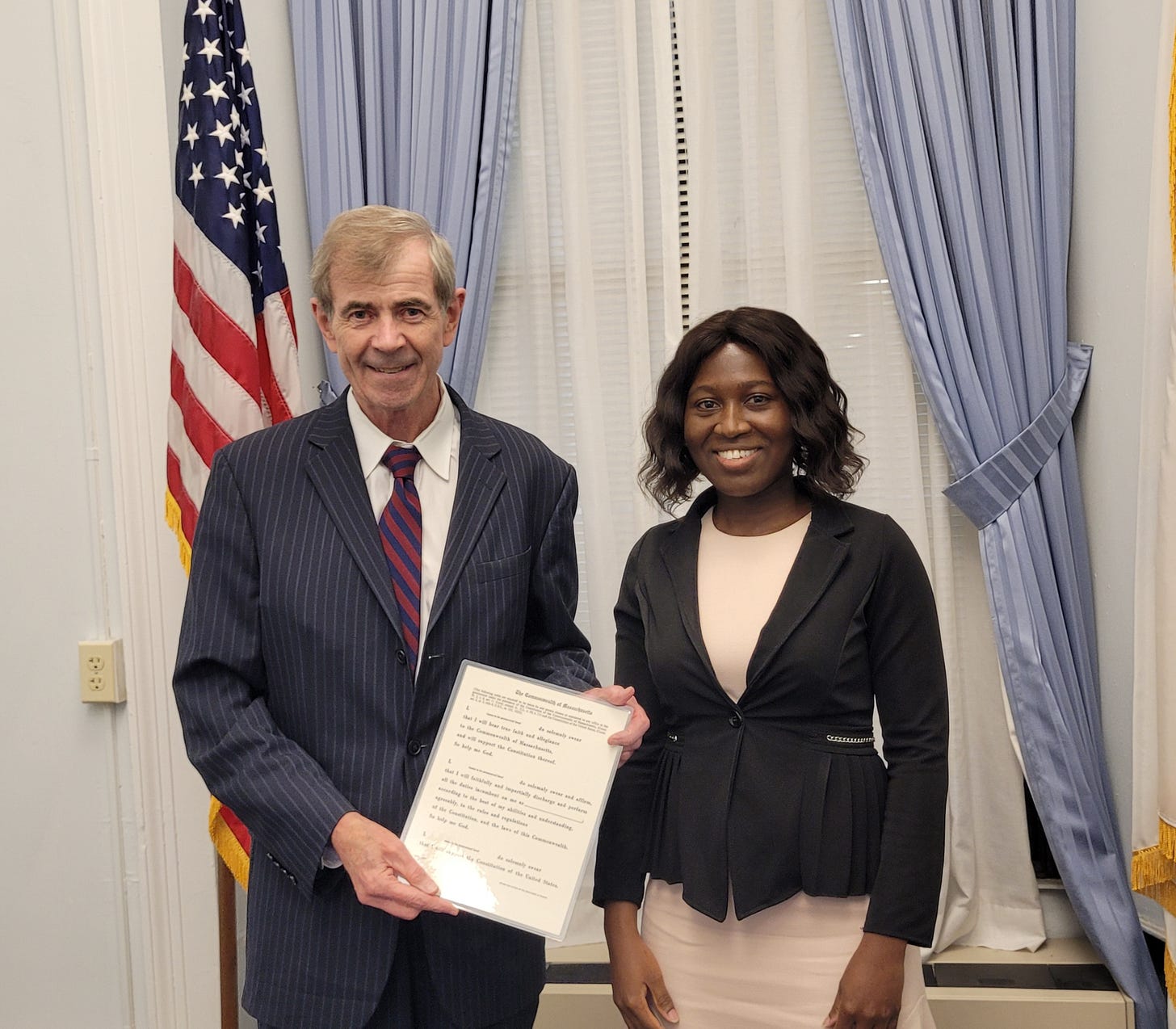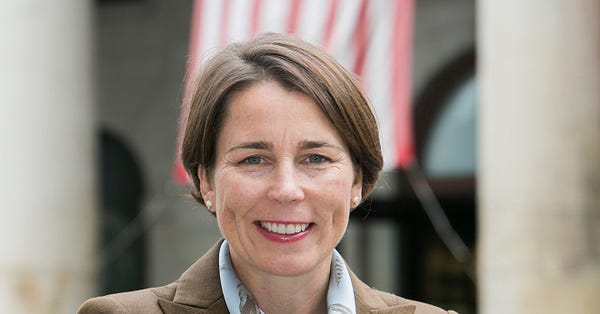Public records watchdog declines to intervene after governor withholds records
Supervisor of public records leaves public with no recourse when Healey administration keeps records secret

The Massachusetts public records watchdog said Wednesday that she will not intervene after the governor’s office refused to release records. The decision leaves the public with no recourse when one of the state’s most powerful political figures chooses to keep information secret.
“Where the records of the [governor’s office] have been determined to be outside of the Public Records Law, I am unable to assist … in this matter,” wrote Supervisor of Public Records Manza Arthur.
Arthur cited the Supreme Judicial Court’s 1997 Lambert ruling, which says that the governor’s office “is not explicitly included in” the law. Since the decision was issued, governors have cited it to claim a total exemption from the transparency law that towns, cities, and state agencies are expected to follow.
In December, just two weeks before Governor Maura Healey’s inauguration, she told GBH that she would not claim her office was exempt. But shortly after taking office, she reversed herself, issuing a policy that cites Lambert.
The policy says that Healey will “provide more transparency” than past governors and respond to records requests, but it adds that her administration will take into account “any unique obligations of the Governor’s Office” when deciding whether to release records.

In response to a records request for emails and text messages from the Charlie Baker administration, Healey records access officer Michael Kaneb said the Healey administration will not release any records from past governors.
Arthur sided with the Healey administration, agreeing that Lambert provides a blanket exemption for the governor’s office.
In 2017, Arthur’s predecessor, Rebecca Murray, took the position that the governor’s office was not totally exempt from the law. When the Baker administration refused to comply with a request from the Boston Globe, Murray referred the case to the attorney general’s office.
The supervisor of public records, who is appointed by the secretary of the commonwealth, does not have the authority to enforce her orders in court. When agencies refuse to comply with her decisions, she must rely on the attorney general’s office.
But the attorney general’s office, which was then headed by Healey, sided with the Baker administration and declined to enforce the order.
Arthur cited the attorney general’s 2017 opinion in her decision that the governor’s office is exempt from the law.
In January, Debra O’Malley, communications director for Secretary of the Commonwealth William F. Galvin, said: “Of course, if a requester receives a dissatisfactory response from the governor’s office or an agency under the governor’s office, the appeal will be opened, as required.”
O’Malley said her statement was not contradicted by Arthur’s decision.
“It appears that you did receive a dissatisfactory response from the governor’s office, you subsequently filed an appeal, the appeal was opened, and a determination was issued based on the response provided,” O’Malley said.
She added: “Of course, at the beginning of January, neither I nor the supervisor could know what exemptions, if any, the governor’s office would claim. As the governor’s office chose to invoke the Lambert decision, and as a decision of the attorney general’s office concluded that such records are not subject to the public records law, the supervisor is unable to order the release of such records.”
The state’s Legislature and judiciary are also exempt from the public records law, leaving Massachusetts with one of the least transparent state governments in the country. There are several bills currently before the Legislature aimed at addressing this problem.
A bill filed by Senator Michael Brady would apply the law to the governor’s office but would only take effect after Healey’s current term ends and would not apply to records created before then. Galvin is a cosponsor of the bill.
O’Malley said the Brady bill was intended to include records from Healey’s current term but there “appears to have been a drafting error.”
“Secretary Galvin’s position has not changed, and he still wants to apply the public records law to the office of the governor, beginning with January 5, 2023,” O’Malley said. “We apologize for the confusion that error caused, and we will seek to remedy it as the bill moves its way through the legislative process.”
Another bill filed by Senator Jamie Eldridge would apply the public records law to the governor and would apply to all records created since Healey took office. Eldridge’s bill also includes a number of changes to make the Legislature more transparent, like requiring the body to post committee votes online and provide copies of written testimony on request, but it would not apply the public records law to legislators.
Another bill filed by Senator Becca Rausch would apply the law to the governor’s office and Legislature and would not be limited to newly created records. The bill would also create two new exemptions. The first would apply to communications with constituents. The second would apply to documents related to policy-making discussions; it would be more expansive than a similar exemption that already exists but would only apply to the governor’s office and Legislature.
However, similar bills have died in committee in the past, including last year.
In January, Galvin told GBH that he does not think the Legislature is likely to open up its records for public inspection any time soon.
“What [legislators] will tell you is that it’s because they want to protect the candor of discussion [and] debate on legislation,” he said. “Why would their contracts or employment practices or something like that be exempt? What does that have to do with negotiation?”
It’s undeniable that most lawmakers have little appetite for opening up additional state records — particularly their own — for public inspection. When legislators passed an overhaul of the public records law in 2016, they punted on the issue of the governor, Legislature, and judiciary by creating a commission to study the matter.
The commission did not bother to meet until after the Globe started asking questions. Then the legislature gave the commission an 11-month extension on its deadline. Finally, the commission disbanded in 2019 without issuing a report.
As a CommonWealth headline observed at the time: “Beacon Hill pols prefer less scrutiny of Beacon Hill pols.”
Healey has also signaled that she has little interest in more transparency. In January, GBH’s Jim Braude asked her whether she intends to file her own legislation to subject her office to the public records law.
“I don’t think I need to file legislation,” Healey responded. “I think that I can just implement along the lines that I’ve articulated. And that’s what I’m going to do.”
With the new legislative session underway, now might be a good time to look up your legislators and urge them to support expanding the scope of the public records law.
If you’d like to read more reporting like this, please consider supporting my work financially, either by signing up for a paid subscription to this newsletter or sending me a tip via PayPal.
If you have any story ideas, let me know about them! You can email me at aquemere0@gmail.com or send me a direct message on Twitter or Mastodon.
That’s all for now.



